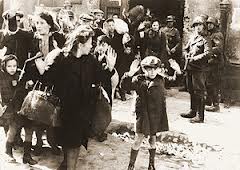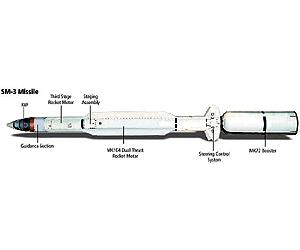All English posts
The event is organized with support of Italian embassy in Kiev. Event’s official partners of are UniCredit Bank (General partner), Ferrero, Salini, Ukrainian international airlines, Iveco. Informational support – Presscom. 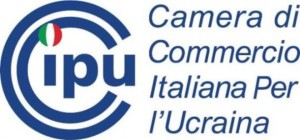
Schedule:
11-00 Exhibition of Italian masterpieces. The exhibition will be inaugurated by His Excellency Ambassador of Italian Republic to Ukraine Mr. Fabrizio Romano, and President of Italian commercial chamber in Ukraine Mr. Maurizio Carnevale. The entrance is free.
12:00 Presentation of Vittorio Varro’s art-zone. A group of students of Italian art-schools under supervision of Mr. Vittorio Varro will present 4 masterpieces within 2 days. The profit obtained from sale of these art products, will be used for charity purposes. The entrance is free.
14:00 Taste seminars. Italian producers of high quality products will present Italian wine industry to Ukrainian consumers. Pasta, Prosciutto, Ham, bread, confectionary, Parmesan, etc. and exclusive BEER will be available. Try Italian cuisine yourself! Pre-registration is required.
15:00 Made In Italy. Presentation of Italian commerce chamber’s projects in Ukraine, which are intended to promote Italian products and services in the field of tourism, food service, agriculture. Pre-registration is required.
11:00 Italian automobile-design review. (June 2, Kreshiatik str., start from Bessarabian square). Bikes and cars of famous Italian producers (Ferrari, Maserati, Lamborghini, and Ducati), will drive through the main street of Kiev. The Iveco super-truck, designed in a huge stage, will close the review and host the Italian music performance. The entrance is free.
Georgia’s Olympic Committee decided that its athletes will compete at the 2014 Winter Olympics in Sochi, scotching earlier suggestions they would boycott the event being hosted by arch-foe Russia. “Today the Georgian National Olympics Committee, at its extraordinary session, decided that Georgia’s Olympic team will take part in the 2014 Olympic Games,” the committee’s first vice-president Elguja Berishvili told AFP. 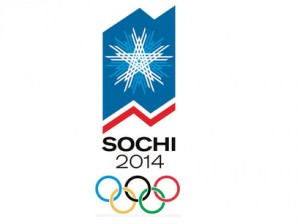
The Games will be held in Sochi, near Russia’s border with the breakaway region of Abkhazia, which Georgia claims as part of its territory, while Russia considers it independent and maintains a large military presence there.
The debate over a boycott reflects Georgia’s political fault lines. The party of President Mikhail Saakashvili has floated the idea of a boycott, while his implacable opponent Prime Minister Bidzina Ivanishvili said Georgia will “definitely” take part.
Large scale military actions were launched in South Ossetia in Georgia on August 8 2008. Later Russian troops occupied Tskhinvali and expelled the Georgian military. Russia recognized the independence of South Ossetia and Abkhazia late in August. Tbilisi ended diplomatic relations with Moscow in response and has announced the two unrecognized republics to be occupied territories.
Relations between the two countries have thawed since billionaire Bidzina Ivanishvili’s coalition triumphed at parliamentary elections last October. Ivanishvili has made normalising ties with Russia his foreign policy priority.
ECHR-Ukraine, Tymoshenko arbitrarily detained.
30 Apr 2013 In today’s Chamber judgment in the case of Tymoshenko v. Ukraine (application no. 49872/11), which is not final, the European Court of Human Rights held, unanimously, that there had been: 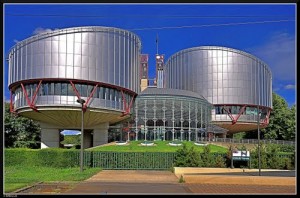
a violation of Article 5 § 1 (right to liberty and security) of the European Convention on Human Rights;
a violation of Article 5 § 4 (right to a speedy review of the lawfulness of detention);
a violation of Article 5 § 5 (right to compensation for unlawful detention);
a violation of Article 18 (limitation on use of restrictions on rights) in conjunction with Article 5;
and it held, by a majority, that there had been no violation of Article 3 (prohibition of inhuman or degrading treatment or punishment) in respect of Ms Tymoshenko’s alleged ill-treatment during her transfer to hospital on 20 April 2012 and the effectiveness of the investigation of those complaints.
The case concerned complaints related to the detention of the former Ukrainian Prime Minister Yuliya Tymoshenko. The Court held in particular: that Ms Tymoshenko’s pre-trial detention had been arbitrary; that the lawfulness of her detention had not been properly reviewed; and, that she had no possibility to seek compensation for her unlawful deprivation of liberty. The Court also found that, given that the judge had referred to her alleged hindering of the proceedings and contemptuous behaviour, her right to liberty had been restricted for other reasons than those permissible under Article 5.
Press Release – European Court of Human Rights April 30th, 2013.
Afghanistan, The Istanbul Process goes on.
26 Apr 2013 Almaty hosted the Third Ministerial Conference of the Istanbul Process on Afghanistan with the participation of Kazakhstan’s President Nursultan Nazarbayev. More than 50 delegations, led by the foreign ministers of the participating states, supporting countries and heads of international organizations, attended the Almaty Conference. The participants fully supported the plans of the regional countries to cooperate on Afghanistan and confirmed their willingness to purposefully expand and deepen regional cooperation based on the principles of friendship, respect and mutual benefit. 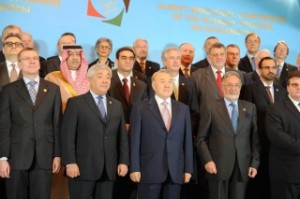
In his welcoming remarks, President Nursultan Nazarbayev highlighted the importance of regional cooperation and outlined Kazakhstan’s role in the international community’s plans on Afghanistan. He noted that Kazakhstan had been providing political, economic and humanitarian assistance to Afghanistan starting from the 1990s directly or through international efforts.
Following the Conference, the participants adopted a final declaration, in which the parties confirmed their intention to continue to support Afghanistan’s engagement in the economic and political life of the region. The Conference participants highlighted the importance of these measures in the context of the withdrawal of International Security Assistance Forces from Afghanistan. They also adopted specific action plans for each of the six packages of the confidence-building measures of the Istanbul Process.
The third Ministerial meeting of the foreign ministers of the Istanbul Process has allowed the regional countries to harmonize their approaches on conducting a policy dialogue with Afghanistan and identify concrete measures of cooperation in the fields of education, economy, fight against terrorism, drug trafficking, and natural disasters, as well as the development of regional infrastructure.
The supporting countries and international organisations expressed full support for the intentions of the regional states and identified forms and conditions of their participation in the development of cooperation measures on behalf of Afghanistan. The sides emphasized their willingness to work closely in the context of international and regional organisations such as the UN, SCO, CICA, OSCE, CSTO, ECO and other.
A number of side events took place during the Almaty Conference. These included a presentation by the mayor of Almaty Akhmetzhan Yessimov on the opportunity to turn the city into a regional hub of multilateral diplomacy; an expert level seminar of the relevant bodies of the member countries of the Istanbul Process on Kazakhstan’s potential as a transit and transport corridor; an exhibition of Kazakhstan’s goods and products for export to Afghanistan.
Kazakhstan remains a reliable foreign partner of Afghanistan. Astana is committed to the development of political contacts with Kabul both in bilateral and multilateral formats.
In accordance with the adopted Declaration, the next Conference of the foreign ministers of the Istanbul Process on Afghanistan will be held in China in 2014. In this regard, Kazakhstan expresses its gratitude to the Chinese side not only for their willingness to host the fourth meeting, but also for full support and contribution to the development of the Istanbul Process.
Statement from MFA Kazakhstan
Poland does not expect the EU Council to lift this year the Excessive Deficit Procedure, an EU mechanism for enforcing fiscal rules. The country missed its public-deficit target for 2012 according to the recently released data from the Central Statistical Office (GUS). 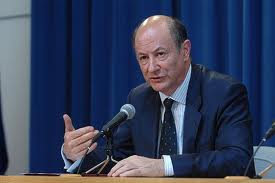
Warsaw has been subject to scrutiny from Brussels since 2009 for running public deficits above the EU’s limit of 3% of gross domestic product. Despite initial plans to shrink the gap to 2.97%, the 2012 deficit ended up at 3.9% of GDP, GUS said.
“The Polish government believes it will reduce its general government deficit to 3.5% of GDP in 2013, thus paving the way to lifting excessive deficit procedure in 2014 versus previously expected 2013”, Polish Finance Minister Jacek Rostowski said at a news conference.
Of the EU’s 27 members, 20 are currently under an Excessive Deficit Procedure for missing deficit targets.
Poland is the only European Union country to have avoided a recession since the Lehman Brothers’ collapse in 2008, but its expansion decelerated to 1.9% last year from 4.5% in 2011, according to recent data.
With the prolonged troubles of the eurozone undercutting the country’s export industries, rising unemployment, and pressure on private consumption and investment, the finance ministry cut its growth forecast for 2013 to 1.5%
Poland. Warsaw Ghetto Uprising, 70 years later.
23 Apr 2013“The Polish capital of Warsaw marked the 70th anniversary of the Warsaw Ghetto Uprising of 1943, when hundreds of young, poorly armed Jews staged an ultimately doomed revolt against the Nazis.
Poland was once a Jewish bastion in Europe, 90% of the country’s 3.3 million pre-war Jewish residents were dead by 1945.
One synagogue remains in Warsaw, but it is tucked discreetly away among the skyscrapers and apartment buildings of the capital’s downtown area. To honour the occasion of the 70th anniversary of the uprising, the Museum of the History of Polish Jews is now open. The museum is funded by the Polish state, the city of Warsaw, and several private donors.
The Warsaw Ghetto was the biggest of all of Nazi-occupied Europe’s Jewish Ghettos during World War II, but Germans razed the neighbourhood and the post-war communist regime later built houses directly over the rubble. Three small fragments of the ghetto’s wall survived”.
Article – France 24 – April 2013.
18 Mar: New SIPRI data on arms transfers – China replaces UK as world’s fifth largest arms exporter
China has become the fifth largest exporter of major conventional arms worldwide, according to new data on international arms transfers published by SIPRI. This is the first time China has been in the top five arms exporters since the end of the cold war. Overall, the volume of international transfers of major conventional weapons grew by 17 per cent between 2003–2007 and 2008–12.
The five largest suppliers of major conventional weapons during the five-year period 2008–12 were the United States (30 per cent of global arms exports), Russia (26 per cent), Germany (7 per cent), France (6 per cent) and China (5 per cent). This is the first time that the UK has not been in the top five since at least 1950, the earliest year covered by SIPRI data. China’s displacement of the UK is the first change in the composition of the top five exporters in 20 years.
The volume of Chinese exports of major conventional weapons rose by 162 per cent between 2003–2007 and 2008–2012, and its share of the volume of international arms exports increased from 2 to 5 per cent.
‘China’s rise has been driven primarily by large-scale arms acquisitions by Pakistan,’ said Dr Paul Holtom, Director of the SIPRI Arms Transfers Programme. ‘However, a number of recent deals indicate that China is establishing itself as a significant arms supplier to a growing number of important recipient states.’
Asian imports strengthen naval capabilities
In the period 2008–12 Asia and Oceania accounted for almost half (47 per cent) of global imports of major conventional weapons. The top five importers of major conventional weapons worldwide—India (12 per cent of global imports), China (6 per cent), Pakistan (5 per cent), South Korea (5 per cent), and Singapore (4 per cent)—were all in Asia.
Several countries in Asia and Oceania have in recent years ordered or announced plans to acquire long-range strike and support systems that would make them capable of projecting power far beyond their national borders. Last year notably saw the delivery of a nuclear-powered submarine from Russia to India and the commissioning of China’s first aircraft carrier, Liaoning.
Other regional players are seeking to establish or strengthen submarine fleets, including several South East Asian countries and Australia, which is also acquiring large surface warships and combat aircraft. These developments come at a time of heightening tensions over territorial disputes in the East and South China seas.
Austerity bites in the European arms market
Deliveries to European countries fell by 20 per cent between 2003–2007 and 2008–12. European states seem eager to abandon or reduce a range of arms import plans. During 2012 Italy and the Netherlands reduced their orders for F-35 combat aircraft from the USA, while Bulgaria, Croatia and Romania dropped plans for newly produced combat aircraft in favour of second-hand options.
Many European states are also seeking to export newly acquired combat aircraft that they can no longer afford to maintain. For example, Portugal is seeking buyers for its new fleet of F-16s and Spain is seeking to sell newly purchased Eurofighter Typhoons.
‘With the financial crisis in Europe, the withdrawal from Iraq and the drawdown in Afghanistan, we can expect to see Europe trying to export a considerable volume of surplus military equipment,’ said Mark Bromley, Senior Researcher with the SIPRI Arms Transfers Programme.
Other notable developments
- Russia accounted for 71 per cent of exports of major weapons to Syria in 2008–12 and continued to deliver arms and ammunition in 2012.
- The Arab states of the Gulf accounted for 7 per cent of world arms imports in 2008–2012. Missile defence systems were an important element in their latest arms acquisitions, with orders placed in 2011–12 for Patriot PAC-3 and THAAD systems from the USA.
- Deliveries of weapons system to Venezuela as part of its ongoing rearmament programme continued in 2012. Russia accounted for 66 per cent of transfers to Venezuela, followed by Spain (12 per cent) and China (12 per cent).
- Imports by North African states increased by 350 per cent between 2003–2007 and 2008–12, which was almost entirely responsible for a doubling (by 104 per cent) in imports by Africa as a whole.
- Sub-Saharan imports increased by just 5 per cent. Most countries in sub-Saharan Africa imported only small numbers of major weapons, but many of these have been used in internal conflicts or in interventions in conflicts in neighbouring states, most recently in Mali.
- Greece’s arms imports fell by 61 per cent between 2003–2007 and 2008–12, pushing it from the number 4 importer to number 15. In 2006–10 Greece was the top recipient of German arms exports and the third largest recipient of French arms exports.
Anti-missile defence, US change of plans. No interceptors for Europe. Russia and Poland not happy.
18 Mar 2013 To fund boosting its west coast defences, the US is to scrap plans to place SM-3 IIB missile in Europe and deploy them in Alaska.
The long-range interceptors were to have been the final phase of a program that Russia contends aims to counter its own missiles. Washington says the system is meant to stop missiles from Iran and North Korea.
U.S. Defence Secretary Chuck Hagel, however, stressed that plans are on track to deploy shorter-range missiles to Poland and Romania within the next five years.
“We feel no euphoria in connection with what was announced by the U.S. defence secretary, and we see no grounds for correcting our position”, said Russian Deputy Foreign Minister Sergei Ryabkov.
“This is not a concession to Russia and we do not see it as such,” he added. “We will continue a dialogue and seek the signing of legally binding agreements that all elements of the U.S. missile-defence system are not aimed at Russian strategic nuclear forces.”
In recent past U.S. defence and political officials stated that shorter-range interceptors would still be based in Poland as part of NATO’s missile defence system in Europe.
The Obama administration has planned to put medium-range interceptors in Redzikowo, in northern Poland, starting in 2018, as part of the NATO system.
The U.S. missile defence plans involve building up the system in Europe in four stages, with shorter- and medium-range interceptors to be deployed in the first three phases, and longer-range interceptors due in the fourth phase.
However, the fourth stage has not yet been funded by Congress, and there are indications the technology is not ready. At the same time they have been an irritant in relations between the U.S. and Russia.
Phase one of the system has already been deployed, with anti-missile interceptors on a ship in the Mediterranean Sea. Phase two is to include interceptors in Romania, then interceptors in Poland will come as part of phase three.
The U.S. missile defence system at Romania’s Deveselu military base is not affected either and will become operational in 2015 as planned.
Poland’s main aim in having the U.S. interceptors has been to have an American military presence on Polish soil in the belief it will increase the country’s security, particularly given fears that Russia could one day try to dominate the region again.
The US will now add 14 interceptors against incoming missile threats, to the 30 already in place in California and Alaska by 2017.
Sources: PAP, Reuters, AP, AFP
By 2017 Northern America will achieve the energy independence and will start to export oil and gas abroad. New competitors to Russia are emerging everywhere in the world.
* * *
“In a reported world first, Japan extracted natural gas from methane hydrate, considered a next-generation energy source, in the Pacific seabed off Aichi Prefecture, the Ministry of Economy, Trade and Industry said.
“We started production of a certain amount of methane gas from around 9:30 a.m.,” a ministry official said, noting that if the gas can be extracted without any problems for about two weeks in the ongoing trial, it will be a “major step” toward future commercial development of the resource.
Large concentrations of methane hydrate are believed to exist under the seabed around Japan. Last October, a research team from Meiji University discovered the substance under the seabed in the Sea of Okhotsk and in the Sea of Japan off Akita, Yamagata and Niigata prefectures. There is also a high possibility that it also exists under the seabed off Shimane Prefecture.
Total deposits of methane hydrate around Japan are estimated to be sufficient to cover domestic consumption of natural gas for about 100 years… ”
Full Article – Kyodo – Japan Times
“Let’s first say that the economic crisis is not a euro crisis. There are also economic difficulties in countries that do not have the euro – while at the same time, there are eurozone countries that don’t have any difficulties. In our accession treaty there is a part that says that we will introduce the euro as soon as possible. So it really is an obligation based on that treaty.
In the case of Lithuania, we already de facto have the euro because we have a currency board system that pegs the litas to the euro at a fixed, strong rate. And in reality, our monetary policy very much depends on the European Central Bank. We do not have monetary instruments of our own. We have only the obligations and restrictions and not the benefits that we would have if we had the euro. There are enough reasons to join the eurozone as soon as we can.”
Interview – Deutsche Welle – March 2013.
Welcome
We are a group of long experienced European journalists and intellectuals interested in international politics and culture. We would like to exchange our opinion on new Europe and Russia.
Categories
- Breaking News (11)
- CIS (129)
- Climate (2)
- Energy&Economy (115)
- EU Eastern Dimension (85)
- Euro 2012 – Sochi 2014 – World Cup 2018, Sport (43)
- Euro-Integration (135)
- History Culture (198)
- International Policy (261)
- Military (74)
- Interviews (18)
- Italy – Italia – Suisse (47)
- Odd Enough (10)
- Poland and Baltic States (126)
- Religion (31)
- Russia (421)
- Survey (4)
- Turning points (4)
- Ukraine (176)
- Российские страницы (113)
Archives
- November 2020
- October 2020
- September 2020
- August 2020
- July 2020
- May 2020
- April 2020
- March 2020
- January 2020
- December 2019
- November 2019
- October 2019
- September 2019
- August 2019
- July 2019
- June 2019
- May 2019
- April 2019
- March 2019
- February 2019
- December 2018
- November 2018
- October 2018
- September 2018
- August 2018
- July 2018
- June 2018
- May 2018
- April 2018
- March 2018
- February 2018
- January 2018
- December 2017
- November 2017
- October 2017
- September 2017
- August 2017
- July 2017
- May 2017
- March 2017
- January 2017
- December 2016
- November 2016
- October 2016
- September 2016
- July 2016
- June 2016
- May 2016
- April 2016
- February 2016
- January 2016
- November 2015
- October 2015
- September 2015
- June 2015
- April 2015
- March 2015
- February 2015
- January 2015
- December 2014
- November 2014
- October 2014
- September 2014
- August 2014
- July 2014
- June 2014
- May 2014
- April 2014
- March 2014
- February 2014
- January 2014
- December 2013
- November 2013
- October 2013
- September 2013
- August 2013
- July 2013
- June 2013
- May 2013
- April 2013
- March 2013
- February 2013
- January 2013
- December 2012
- November 2012
- October 2012
- September 2012
- August 2012
- July 2012
- June 2012
- May 2012
- April 2012
- March 2012
- February 2012
- January 2012
- December 2011
- November 2011
- October 2011
- September 2011
- August 2011
- July 2011
- June 2011
- May 2011
- April 2011
- March 2011
- February 2011
- January 2011
- December 2010
- November 2010
- October 2010
- September 2010
- August 2010
- July 2010
- June 2010
- May 2010
- April 2010
- March 2010
- February 2010
- January 2010
- December 2009
- November 2009
- October 2009
- September 2009
- August 2009
Our books





